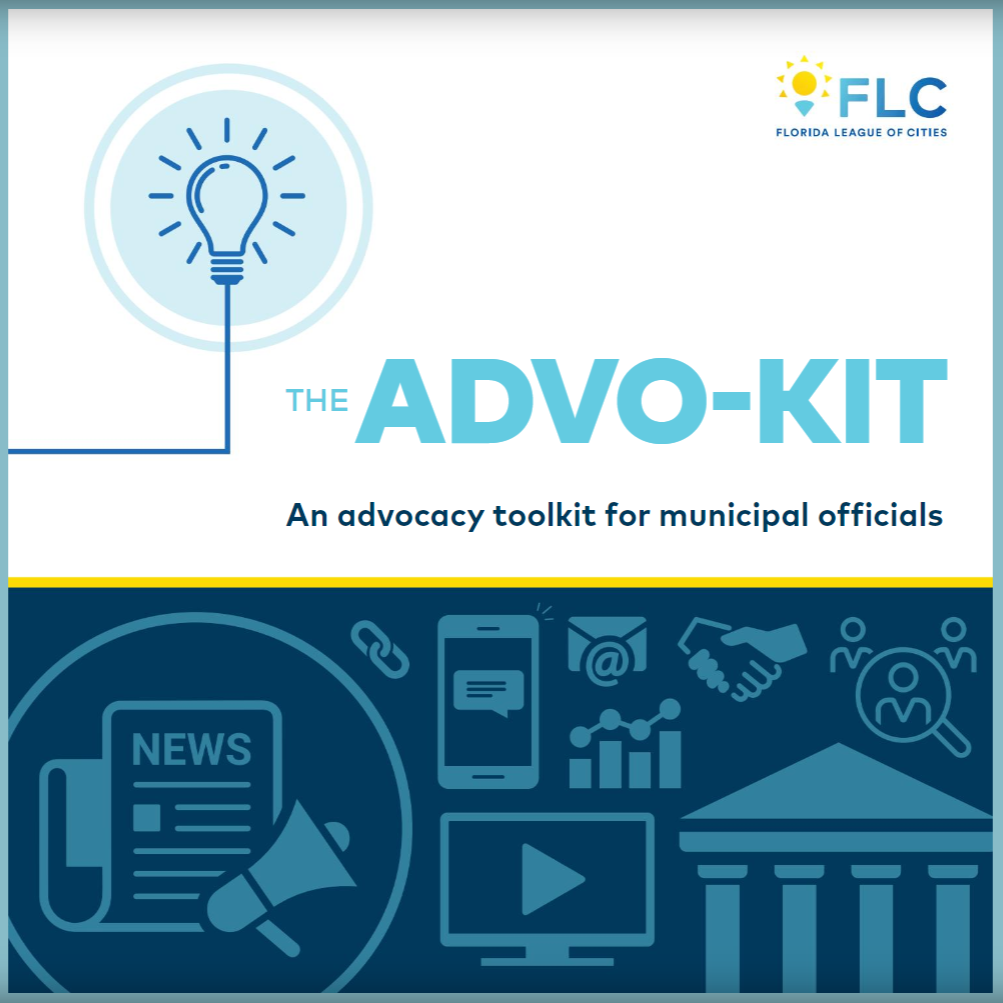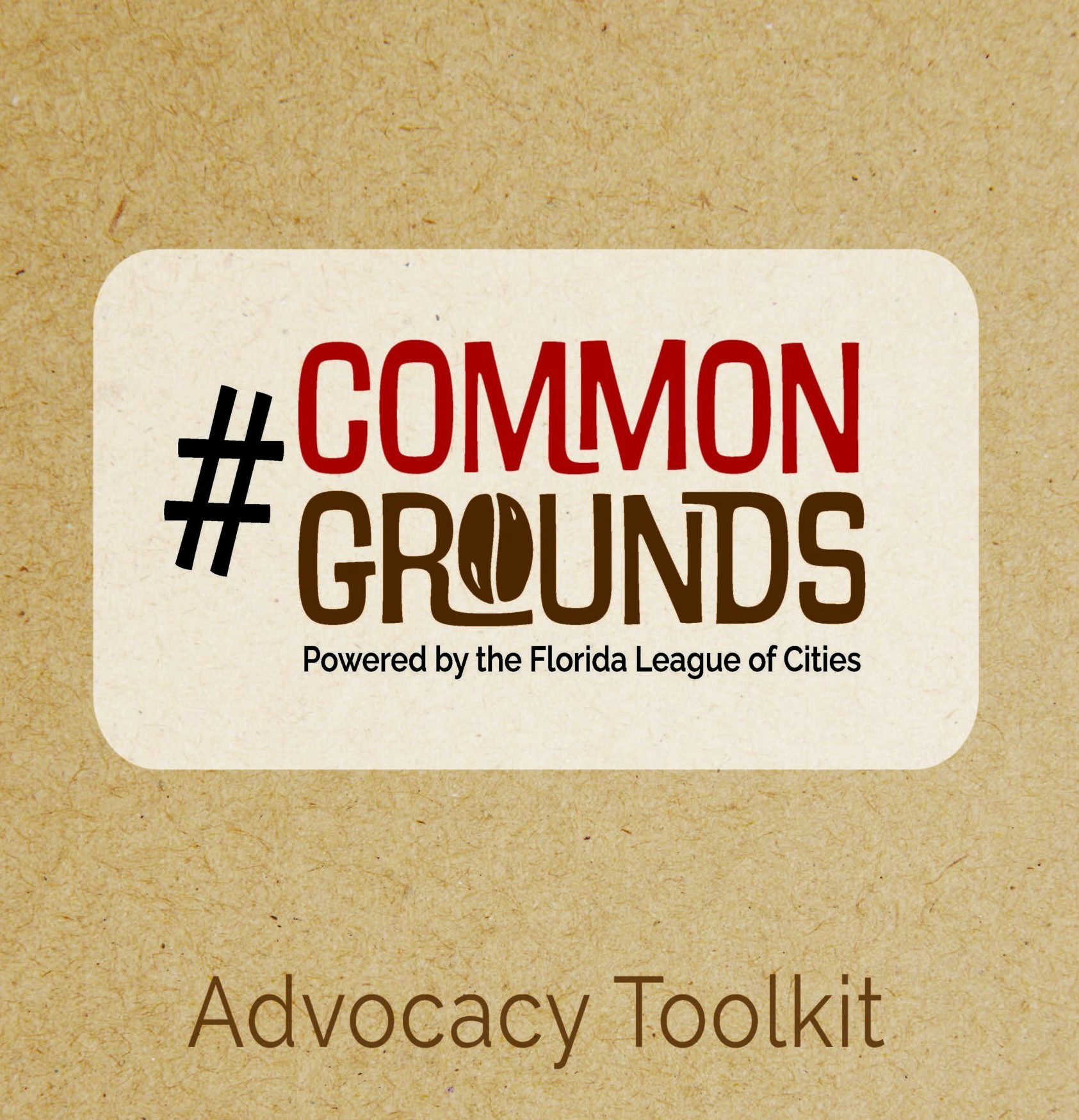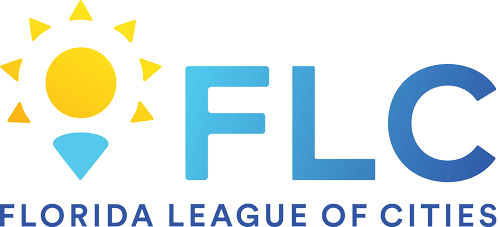City officials understand the importance of advocating for issues that are critical to their residents and communities, but they might not be sure where to start when it comes to interacting with state representatives in Tallahassee.
The Florida League of Cities (FLC) created The Advo-Kit as a tool to help city leaders better understand their role in legislative advocacy and provide a foundation of knowledge about Home Rule and what it means to cities. Along with the background on the importance of local decision-making, the toolkit includes specific tips on how to initiate contact, discuss issues and follow up with legislators.
During the recent legislative session, newly elected and experienced city officials used the interactive digital resource to develop or strengthen their advocacy skills. The videos, tips, examples and guides address questions such as the following.

“Where can I learn about the Florida State Legislature and how laws are made?”
A succinct but comprehensive overview of the legislative session, how a bill becomes a law and who’s who in the state Legislature are a few of the resources. When municipal leaders weren’t certain who represents the districts their city encompasses, they referenced a list of tools that identified them and provided contact information.
“I’ve never advocated for a city before. What is Home Rule?”
With Home Rule serving as a guiding principle for city leaders as well as FLC staff representing Florida cities, understanding Home Rule and the proposed bills that would preempt local control over local issues is important. Officials accessed the explanation of Home Rule, examples of past proposed bills that challenged Home Rule and a link to FLC’s Legislative Bill Summaries, which was updated weekly during session.
“What are the best ways to lobby?”
Creating good relationships with legislative representatives is the first step in effective advocacy. Local officials who used the toolkit followed the tips to respect the legislator’s and staff’s time by always making appointments and agreeing to meet with staff when the lawmaker was unavailable. They also followed the directions to tell the city’s story with data, facts about the city’s unique nature and anecdotes about the proposed bill’s effect on individuals and businesses. They accessed specific tips about virtual and in-person meetings and making contacts via letter or email, including a checklist of items to include in written communication.
“How can I improve media coverage of my city’s issues?”
Local officials who accessed the toolkit learned they needed to become familiar with reporters’ work and understand what beats they cover so their story ideas could be pitched to the person who was most likely to be interested. They followed other tips in the toolkit, including choosing the most appropriate author for op-eds, respecting deadlines and keeping their main point at the top of any press release, media advisory or letter to an editor.
“I’ve been an advocate for my city for years but have to testify before a committee. How do I prepare?”
Elected officials looked at and followed recommendations on ways to research the committee so they knew who would hear the testimony. They also accessed a template for remarks. By following directions in the toolkit, they knew to be brief but prepared to answer questions during the hearing or via written response if they needed to gather or verify information. They followed the 10 tips on how to communicate confidence and presence via their body language, which is included in the Advo-Kit.

Starting advocacy at home is the foundation for the finding #commongrounds initiative, which promotes informal meetings for coffee and conversation between legislators and city officials – in local coffee shops. (For more on the #commongrounds initiative, see p. 50.)
“The combined resources of the Advo-Kit and the finding #commongrounds toolkit provide a wealth of support for city officials as they create relationships that will form the foundation for effective Home Rule advocacy,” said FLC President Jolien Caraballo, Vice Mayor for the City of Port St. Lucie. “The commitment and enthusiasm of local elected officials to share their cities’ distinctive stories enhance legislators’ understanding of the challenges, impacts and benefits of the proposed bills they consider.”

